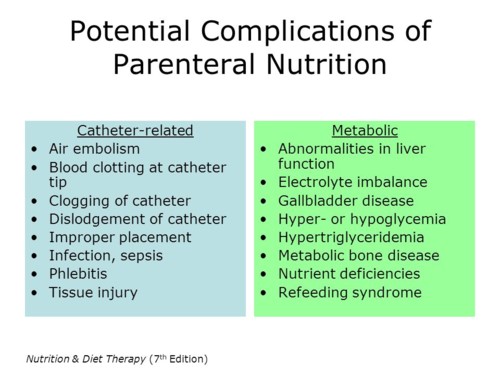An adult woman with a body mass index (BMI) of 21 tells the nurse that she wants to lose 10 pounds (4.5 kg). Which intervention is most important for the nurse to implement?
Describe the value of eating smaller portion sizes.
Encourage a well-balanced diet and moderate exercise.
Explore the reasons the client wants to lose weight.
Determine if the client has a history of anorexia.
The Correct Answer is B
Choice A
Describing the value of eating smaller portion sizes is not appropriate. While portion control is important, this advice alone might not address the overall dietary quality and exercise component necessary for effective weight loss.
Choice B
Encouraging a well-balanced diet and moderate exercise is appropriate. This intervention focuses on promoting healthy and sustainable weight loss. A well-balanced diet helps ensure that the client is getting all the necessary nutrients while aiming for a calorie deficit for weight loss. Moderate exercise complements dietary changes and contributes to overall health and weight management.
Choice C
Exploring the reasons, the client wants to lose weight is inappropriate. While understanding the client's motivations is valuable, this doesn't directly provide guidance on how to achieve the goal of losing 10 pounds.
Choice D
Determining if the client has a history of anorexia is inappropriate. While assessing for eating disorders is important in general, assuming there's no indication of anorexia, the focus should be on providing guidance for safe and effective weight loss.
Nursing Test Bank
Naxlex Comprehensive Predictor Exams
Related Questions
Correct Answer is C
Explanation
Choice A
Urinary ketones are not most important. Monitoring urinary ketones can provide information about the utilization of glucose and fat as energy sources. However, it is not the primary lab value to monitor in TPN administration.
Choice B
Serum protein is not most important. Monitoring serum protein levels is important to assess nutritional status, but it might not be as immediate a concern as serum osmolarity.
Choice C
Serum osmolarity is the most important. When caring for a client receiving total parenteral nutrition (TPN), monitoring serum osmolarity is most important. TPN is a highly concentrated solution containing various nutrients, and it is infused directly into the bloodstream. Serum osmolarity reflects the concentration of particles (such as electrolytes, glucose, and other solutes) in the blood. Monitoring serum osmolarity is crucial to prevent complications related to fluid and electrolyte imbalances that can arise from the administration of TPN.
Choice D
Capillary glucose is not the most important. Monitoring capillary glucose levels is important, especially in clients receiving TPN with added glucose. Hyperglycaemia is a potential complication of TPN. While glucose monitoring is important, it is secondary to monitoring serum osmolarity, which encompasses a broader range of solute concentrations.

Correct Answer is B
Explanation
Choice A
Canned cream of mushroom soup, tuna salad, and water is inappropriate. Canned soups and processed foods like canned cream soups can be high in sodium. Tuna salad might also have added salt.
Choice B
B. Bacon, lettuce, and tomato sandwich, grapes, and skim milk is the appropriate selection. A serum sodium level of 155 mEq/L (155 mmol/L) is higher than the normal reference range (136 to 145 mEq/L or 136 to 145 mmol/L), indicating hypernatremia or high blood sodium levels. In this case, it's important for the client to choose foods that are lower in sodium to help manage their sodium intake.
Choice C
Taco salad, refried beans, low-fat ice cream, and coffee is inappropriate. Taco salad can contain salty ingredients, and refried beans can also be high in sodium. Processed meats and sauces used in tacos can contribute to sodium intake.
Choice D
Chicken salad on toast, fruit-flavoured yogurt, and iced tea is inappropriate. Chicken salad and some breads might contain added salt. Fruit-flavoured yogurts can also have added sugars, and iced tea can vary in sodium content depending on how it's prepared.
Whether you are a student looking to ace your exams or a practicing nurse seeking to enhance your expertise , our nursing education contents will empower you with the confidence and competence to make a difference in the lives of patients and become a respected leader in the healthcare field.
Visit Naxlex, invest in your future and unlock endless possibilities with our unparalleled nursing education contents today
Report Wrong Answer on the Current Question
Do you disagree with the answer? If yes, what is your expected answer? Explain.
Kindly be descriptive with the issue you are facing.
